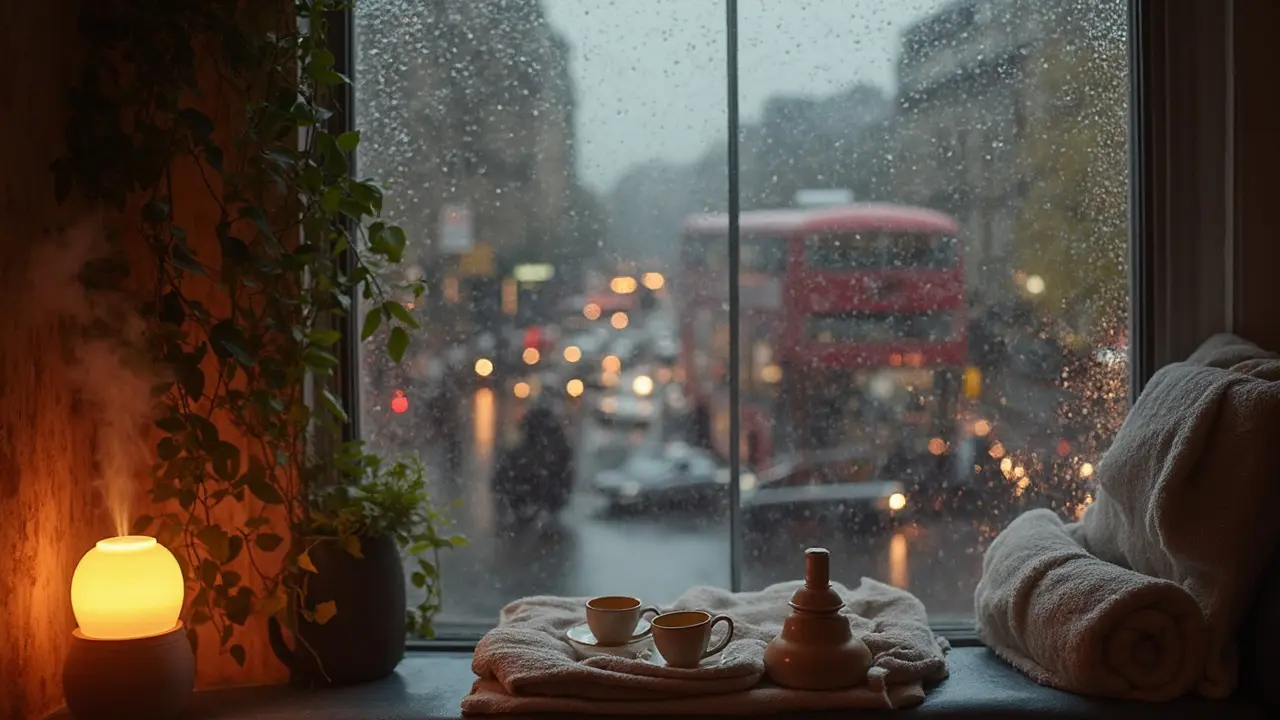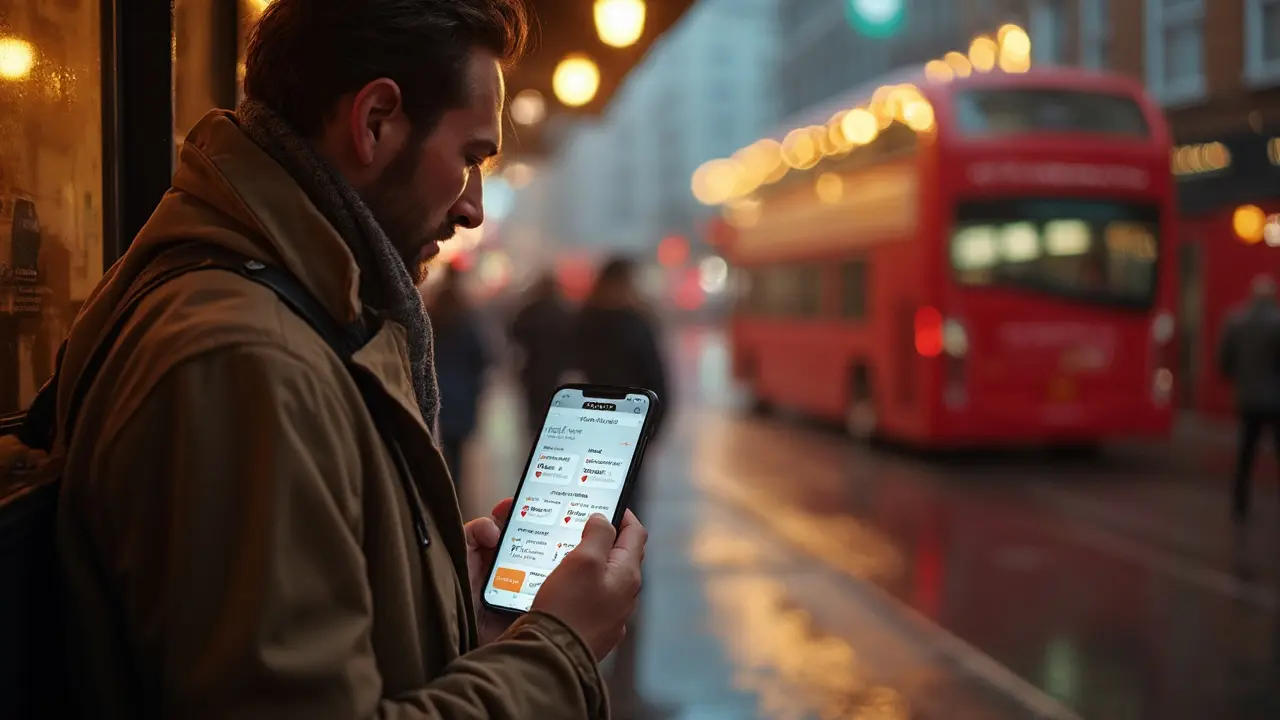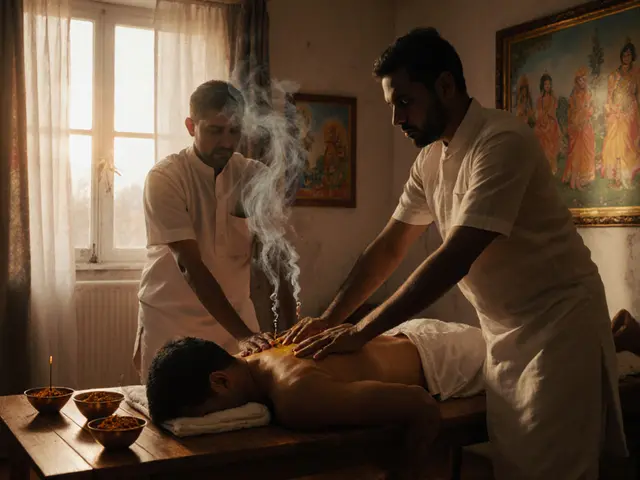TL;DR
- What it is: Real, professional massage in London-sports, deep tissue, Thai, aromatherapy-built to fix pain, stress, and sleep, not sleaze.
- How to get it: Book online or an app; 30/60/90 mins; same-day slots exist but prime times sell out. Expect £60-£90/hr for clinics, £90-£150/hr for hotel spas, £70-£110 for mobile.
- Why it’s popular: London grinds you down-desk necks, gym aches, travel knots. Massage gives rapid relief and better sleep with evidence behind it.
- Why London’s better: Choice, skill, and late hours. From Shoreditch to Mayfair, you’ll find specialists for rugby shoulders, runner calves, or laptop backs.
- Emulsion: You’ll get oil, lotion, or balm-usually grapeseed or sweet almond; hypoallergenic if you ask; scents optional; CBD add-ons are common in 2025.
What “Massage London” Actually Means in 2025 (and What It Isn’t)
I’m Ethan, up the M6 in Manchester most weeks, but London’s where I get my shoulders reset when the city’s pace turns them into concrete. When guys say “Massage London,” we’re talking legit, pro-level bodywork-sports massage for your tight hammies, deep tissue for that iron bar running down your back, Thai for mobility, aromatherapy if your sleep’s gone AWOL.
In plain English: it’s hands-on, pressure-based therapy that lowers muscle tension, improves range of motion, calms your nervous system, and-if you pick the right therapist-makes your brain stop screaming for a bit. The UK’s NHS calls massage helpful for stress and sore muscles, and NICE (the health guideline people) has long included manual therapy as part of care plans for back pain when combined with exercise. Cochrane reviews echo the short-term wins for pain and function. Translation: no magic, just meaningful relief you can feel by the end of a single session.
What it isn’t: a wink-wink “extra” situation. Proper London clinics don’t play that game, and you shouldn’t ask. You want results-less pain, better posture, deeper sleep-not awkwardness. If you want sleaze, you’re on the wrong page. If you want to move like you again, you’re exactly where you need to be: Massage London done right.
Baseline options you’ll see all over the city:
- Sports massage: Targeted, firm, often with trigger-point work. Great for runners, lifters, five-a-side heroes.
- Deep tissue: Slower, heavier pressure into the layers that actually hurt. Think desk warriors with “tech neck.”
- Thai (mat-based or on a table): Stretching, compressions, mobility. Amazing if you feel stiff as a railway sleeper.
- Aromatherapy/Swedish: Lighter, rhythmic, for stress and sleep. Good when your nervous system is cooked.
- Hot stone, cupping, and contemporary add-ons: Nice extras if your goal is warmth, blood flow, and mood shift.
How to Get It: Booking Smart in a City That Never Sits Still
London moves fast. You need a plan. I’ve booked in Mayfair between meetings and in Shoreditch after a late gig; the rules don’t change-only the vibe and the price tag.
Ways to book:
- Clinic websites: Reliable, clear calendars, instant confirmation. Central areas fill early (after-work slots, 5-8pm).
- Apps: Handy for last-minute deals and map-based searching. Filter by modality, price, and male/female therapist if you care.
- Hotel spas: Killer facilities, premium prices. Book at least 48 hours ahead for weekends.
- Mobile therapists: They come to your flat or hotel. Expect a travel surcharge, especially if you’re beyond Zone 2 or it’s late-night.
Typical durations:
- 30 minutes: One region blitz (neck/shoulders or calves/hips). Good emergency fix.
- 60 minutes: The sweet spot for most blokes-upper back, neck, hips, and any hotspots.
- 90 minutes: Proper overhaul: full body plus focused work on your problem area.
Price reality (2025, London):
- Independent clinics: £60-£90 per 60 minutes (Zone 2-3 cheaper, Zone 1 pricier).
- High-end hotel spas: £120-£180 per 60 minutes (Mayfair/Knightsbridge premium).
- Mobile/call-out: £70-£110 per 60 minutes, plus £10-£30 travel fee depending on distance/time.
- Thai houses: £50-£80 per 60 minutes, often great value if you like stretch/compression work.
- Sports therapy/physio-led: £75-£120 for 45-60 minutes, usually with assessment and aftercare drills.
When to book:
- Same day: Possible, especially midday weekdays. Expect fewer therapist choices.
- Peak times (after work/weekends): Book 24-72 hours ahead.
- Race weeks/Marathons: Sports massage slots vanish-book a week early.
- Winter rush (Jan-Feb): New year, new backs; plan ahead.
Etiquette that saves you grief:
- Say what hurts. “Left trap’s on fire; sitting 10 hours daily; deadlifts on Mondays.” More info = better outcome.
- Pressure is personal. Ask for heavier/lighter without guilt. The best therapists check in often.
- No extras chat. It’s a hard no in legit settings-don’t be that guy.
- Tipping: Not expected UK-style, but a simple 10% is a nice nod if they fix you up.
What to wear: Boxers and a towel cover; they’ll undrape only the bit they’re working on. For Thai, you’ll get loose pants/top or remain clothed; for sports, expect oil or balm on skin.
Payment and policies: Card is standard; many are cashless in 2025. 24-hour cancellation is the norm; late cancel/no-shows usually pay 50-100%.
Why It’s Popular with Blokes Who Work Hard and Play Hard
London chews you up-commutes, deadlines, bad sleep, then you try to PR your squat on Saturday. No wonder your neck sounds like bubble wrap. Massage is popular because the payoff is fast and obvious: better movement, calmer mind, a night of sleep that actually sticks.
Evidence side: A 2023 Cochrane overview found moderate, short-term relief for neck and back pain with massage, especially when combined with exercise. NICE guidance has kept manual therapy in blended care plans for low back pain (think massage + movement). On the stress front, the NHS nods to massage for relaxation and anxiety relief-your nervous system downshifts from fifth gear to second. If you’ve ever walked out of a session with your jaw unclenched and shoulders two inches lower, you don’t need a footnote to believe it.
Why regulars swear by it:
- Sleep: Hit a 60-minute aromatherapy on a grim Tuesday and watch your sleep quality reboot that night.
- Performance: Sports massage before a race loosens calves and hips; after, it helps you bounce back faster.
- Desk damage control: Deep tissue on pecs, traps, lats, and hip flexors turns “office statue” into “moving human.”
- Stress reset: An hour offline where someone else carries your tension is the cheapest therapy you’ll actually use.
London advantage: reach and range. You can go clinical in the City at lunch, Thai in Soho after work, or a mobile session in Canary Wharf when you’re chained to back-to-back Zooms. Extended hours are common-7am opens and 9-10pm closes in busy spots.
From my own miles: I’ve been ragdolled on a mat near Old Street by a Thai specialist who read my hips like a book, and I’ve had a sports therapist in Marylebone strip my calves so clean I set a 5K PB two days later. When a city concentrates talent and demand, the craft sharpens.

Why It’s Better Here: Styles, Quality, and Price Reality
You’ve got choice, but choice can paralyze. Here’s the cheat-sheet I wish someone handed me after my first “uh, just my back please?” moment.
| Type | Best For | Typical Price (60 min) | How It Feels | When to Pick |
|---|---|---|---|---|
| Sports Massage | Gym aches, runners, lifters | £75-£110 | Focused, firm, precise | Race week, heavy training, nagging hotspot |
| Deep Tissue | Desk neck, locked back, stress knots | £70-£100 | Slow, heavy, satisfying release | When you need serious pressure and fewer pleasantries |
| Thai (Mat/Table) | Stiff hips, mobility, full-body reset | £55-£85 | Stretching, compressions | When you feel tight everywhere and crave movement |
| Aromatherapy/Swedish | Stress, sleep, anxiety | £65-£95 | Flowing, soothing, scented or unscented | When your brain needs an off switch |
| Hot Stone / Add-ons | Circulation, warmth, mood | +£10-£25 on base | Heat-driven, gentle | Cold days, recovery weeks |
Clinic vs spa vs mobile-what’s the play?
| Option | Pros | Cons | Best For |
|---|---|---|---|
| Independent Clinic | Top value, wide skill mix, sports gear | Less fancy rooms | Regulars who want results on a budget |
| Hotel Spa | Steam/sauna access, plush setup, brand consistency | Higher price, stricter schedules | Treat-yourself days, gifting, pre-flight resets |
| Mobile Therapist | Zero commute, max convenience | Travel fee, space needed, building access | Late-night relief, parents, WFH warriors |
My rule of thumb:
- Under £70 for an hour in Zone 1? Expect no-frills; can still be excellent. Tip if they nail it.
- £90-£120? You’re paying for prime location, extras, or a specialist with a waitlist.
- Anything above £150? You’re buying the spa ecosystem-steam, robes, pools-plus a name.
Pressure guide you can say out loud without sounding daft:
- “Medium on the back, heavy on the traps, light on the calves, skip the feet.”
- “If you find a trigger point, hold 20-30 seconds, then flush it.”
- “I need range in my hips-please mobilise TFL and glutes.”
Frequency that works: Every 2-4 weeks for maintenance; weekly during heavy training or rehab. Pair it with two mobility sessions and a daily 5-minute pec/hip flexor stretch. Massage doesn’t replace movement; it supercharges it.
Oil, Lotion, or Balm? The “Emulsion” Question, Answered
Let’s talk the slick stuff. You’ll get one of three: oil, lotion, or balm. Which “emulsion” hits your skin depends on the style, your skin type, and the goal of the session. Ask before you start-pros will tailor.
The common line-up in London right now:
- Grapeseed oil: Light, neutral, cheap and cheerful. Great glide, minimal scent. Rinses easy.
- Sweet almond oil: Silky, classic. Feels luxe; avoid if you’ve got nut allergies.
- Jojoba oil: Premium, skin-friendly, doesn’t go tacky. Often a small upcharge.
- Fractionated coconut (MCT): Non-greasy, stable, good for mobile therapists who need no-spill bottles.
- Unscented lotion: Less slip, more grip-perfect for sports massage where they need friction.
- Balms (tiger balm-style or menthol): Warmth and tingle for stubborn spots; used sparingly on targeted areas.
- CBD-infused oils: Popular in 2025; legal UK topicals, no high. Aim is local relaxation-feels good, smells herbal. Expect a £5-£15 add-on.
Scent or no scent? Your call. If you’re running on fumes, lavender/bergamot eases you down. If you’re on lunch break, go unscented so you don’t walk into a meeting smelling like a botanical garden.
Skin sensitivity playbook:
- Allergy-prone? Ask for unscented, hypoallergenic lotion or jojoba. Say “no nuts.”
- Acne on back/shoulders? Go lotion or jojoba; skip heavy, scented oils.
- Hairy back/legs? Oils glide better; therapists will use more to prevent drag.
How it changes the session:
- Oil = smoother, longer strokes; great for relaxation and broad work.
- Lotion = control; better for deep, specific work on trigger points.
- Balm = heat and focus; expect that “whoa” warmth on your tight spot.
Ask this at the start: “Can we go unscented lotion for control, then a touch of warming balm on left shoulder, and finish with a hot towel?” That’s how you sound like a man who knows what he’s buying.
Prices, Timing, and the No-Nonsense Checklist
If you want the results without faff, use this checklist every time you book:
- Define your goal: Pain relief vs mobility vs stress. If you don’t know, say “I need my neck/hip/low back to stop screaming.”
- Pick the type: Sports for precise fix; deep tissue for deep knots; Thai for mobility; aromatherapy for sleep.
- Set duration: 60 minutes for most; 90 if you’ve got two problem zones.
- Choose your emulsion: Unscented lotion for control; grapeseed/jojoba for glide; balm only on hot spots.
- Book the slot: Avoid right before a critical meeting-you’ll be blissed out or a bit sore.
- Eat light: A banana, not a burger. Hydrate before and after.
- Communicate pressure: Green-light the good pain, veto the bad pain.
- Plan recovery: Gentle walk, water, maybe magnesium before bed.
Sample scenarios and what I’d book:
- Desk zombie with migraines: 60-min deep tissue, unscented lotion, focus on traps, SCM, pec minor. Ask for jaw/scalp finish if offered.
- Half-marathon taper week: 45-60-min sports massage, lighter pressure, calves/hamstrings/hips, no heavy work 48 hours pre-race.
- Jet-lagged on a Canary Wharf layover: 60-min aromatherapy with lavender, light-medium pressure, long strokes for lymph flow.
- Sunday reset after heavy deadlifts: 90-min Thai table, mobility focus on hips/low back, add a dab of warming balm on QL/glute med.
Risks and mitigations:
- Soreness next day: Normal after deep work. Walk it off, hydrate, gentle mobility. Avoid max lifting for 24 hours.
- Bruising: Should be rare. If you bruise easy, say so. Ask to go medium and skip aggressive tools.
- Allergic reaction: Do a patch test on wrist, or go hypoallergenic unscented from the start.
- Hidden fees: Ask upfront-“Any add-ons or travel fees?” No one likes surprises.
2025 London quirks to know:
- Late-night slots exist, but mobile surcharges after 9pm are common.
- ULEZ/parking realities mean mobile therapists may nudge prices up if you’re far out or gated.
- Plenty of clinics are cashless now; Apple/Google Pay is king.
- Peak-hour commutes delay you-buffer 15 minutes so you’re not rushing in sweaty.
And the big one: respect the line. Professional massage is clinical and legal. Sexual services aren’t part of the deal-asking nukes the vibe and the session.
If you need a starting point for searches, aim for areas that match your day: City/Canary Wharf for weekday lunch fixes, Soho/Shoreditch for evenings, Marylebone/Mayfair for premium downtime. Or just search “sports massage near me” and filter by ratings, price, and availability.
One last pro tip from a bloke who’s had too many knotty Mondays: book your next session before you leave while you’re still floating. Maintenance beats meltdown every time.
Mini-FAQ
- Will I be sore? A bit, if the work was deep. It fades within 24-48 hours.
- Can I train after? Keep it light that day. Save heavy lifts for tomorrow.
- Do I shower first? Yes. Quick rinse. Everyone’s happier.
- Can I talk during? Your call. I prefer silence with the odd “a bit lighter there.”
- Should I eat after? Protein and water. Your tissues have been worked; feed them.
Next steps
- Office warrior: Book a 60-min deep tissue this week; add a daily 5-min chest/hip opener.
- Runner/cyclist: Slot a sports massage every 2-3 weeks during peak season.
- Traveler: Hit an aromatherapy session the day you land for sleep, or mobile in your hotel.
- Budget-minded: Thai in Zone 2-3 for £55-£70 can beat fancy spaces on results.
That’s the play. Choose your style, state your goal, pick your emulsion, and walk out feeling like you borrowed a new body for the week. London will still be London tomorrow-but you’ll handle it better.





